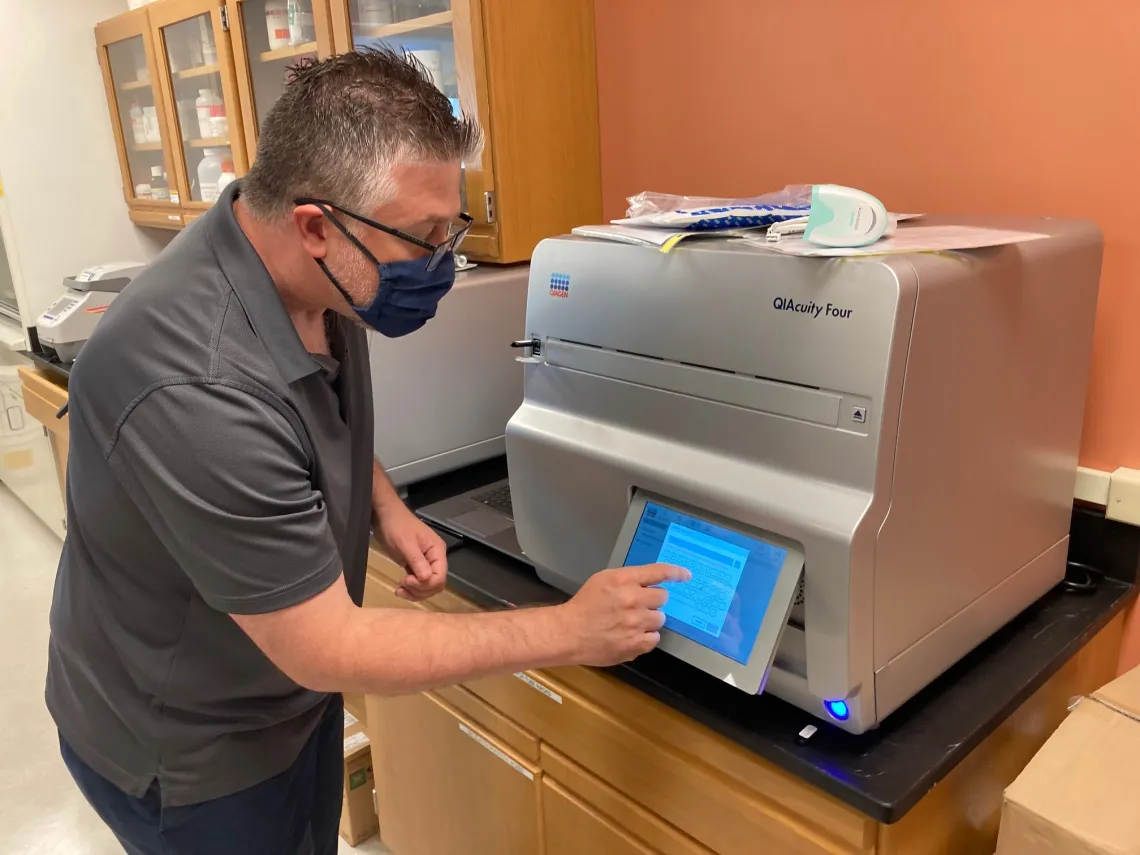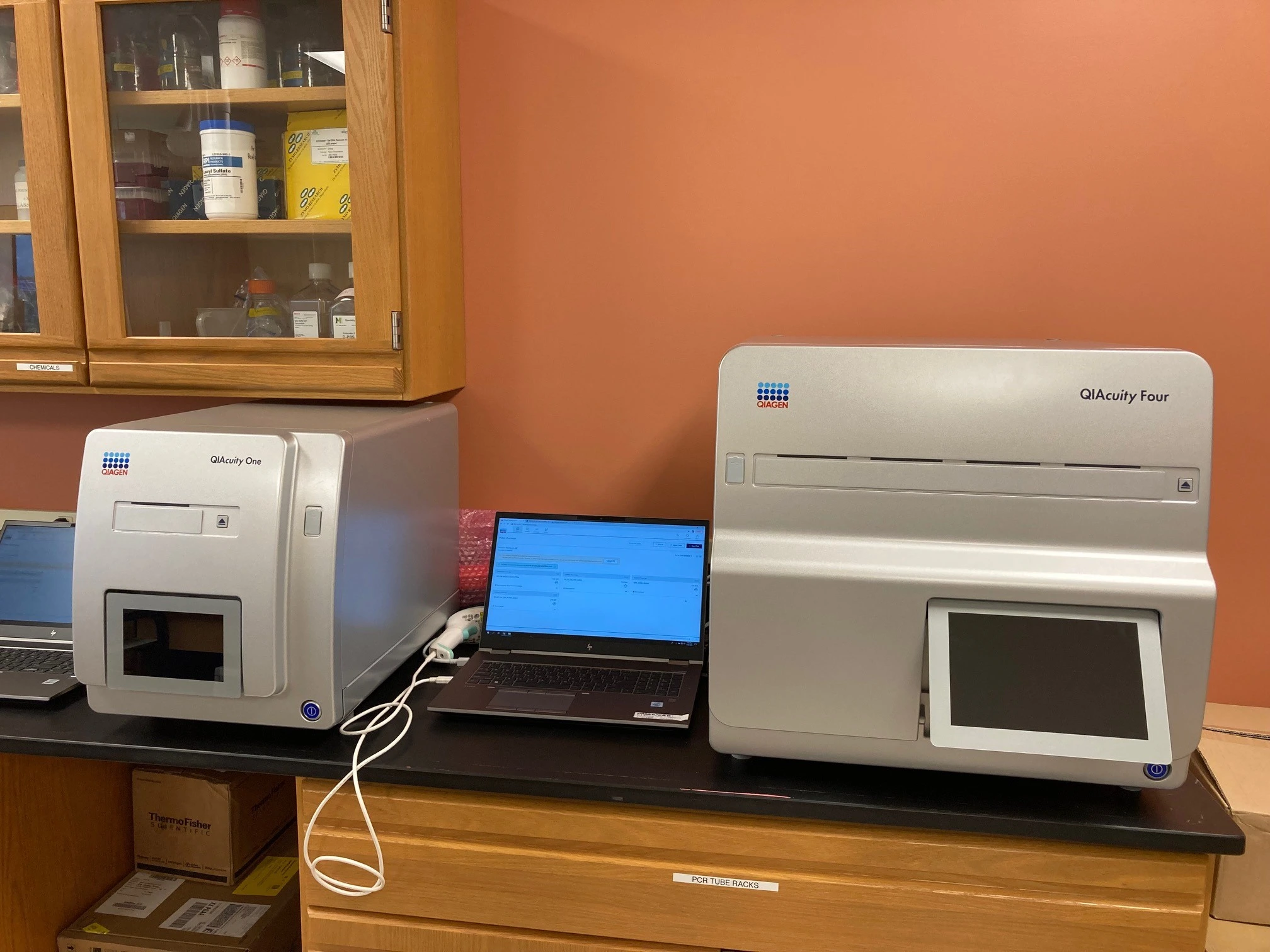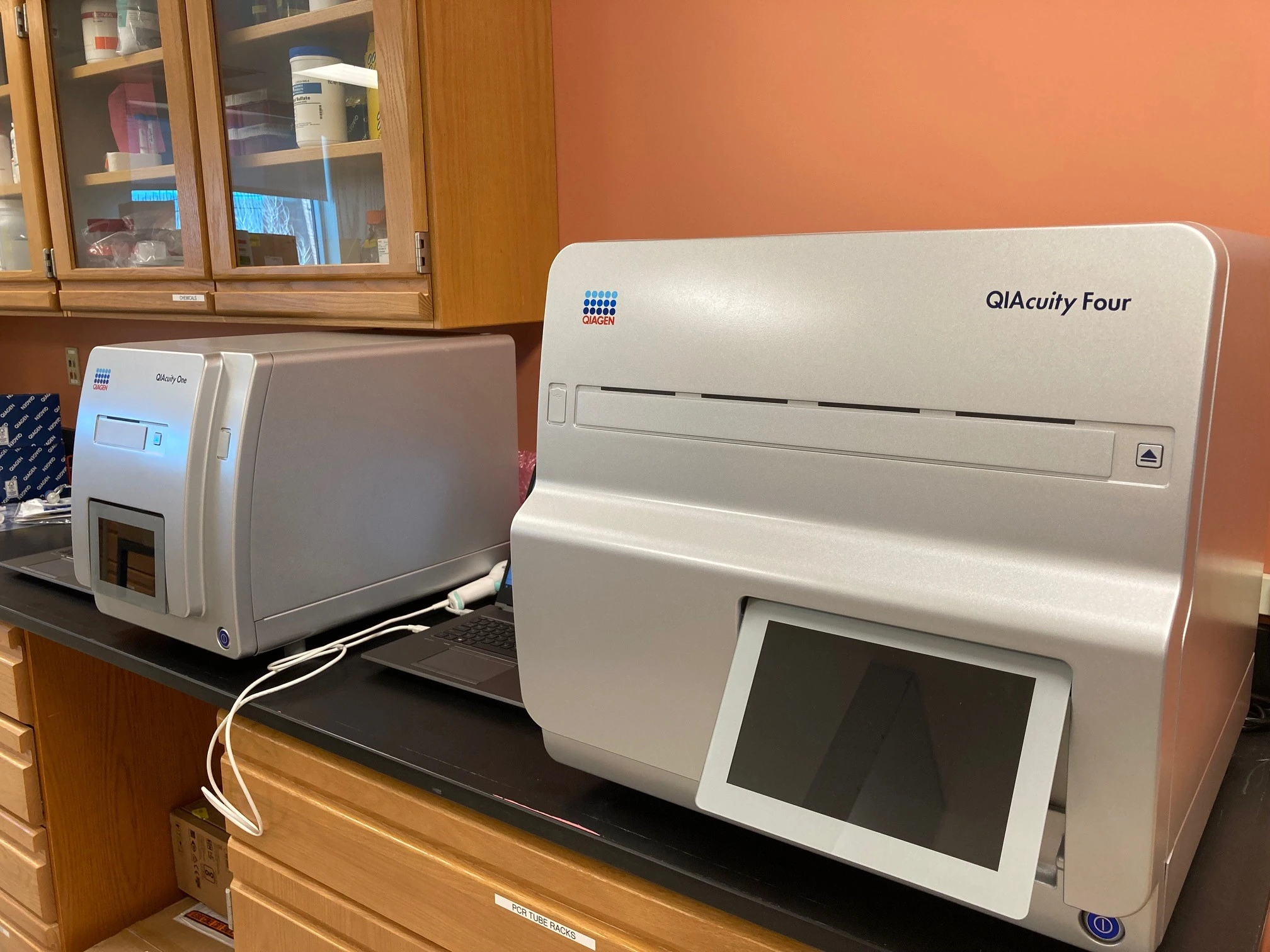New dPCR instruments boost WEST’s analytical capabilities

Wastewater monitoring for SARS-CoV-2 continues to be an essential tool for mitigating pandemic impacts on community health and safety. This is especially true as variants (e.g. Delta) increase COVID-19 transmission and wastewater virus concentrations help to inform clinical testing to stop/slow outbreaks. In order to effectively monitor SARS-CoV-2 and now regularly screen for variants, the WEST Center recently acquired two digital polymerase chain reaction (PCR) platforms, the QIAcuity One 5plex and the QIAcuity Four. These instruments, purchased with funding provided by the University of Arizona Campus Re-entry Project (supported by President Robbins), allow sensitive detection of SARS-CoV-2 (COVID-19 virus) and other viral genomes in wastewater and diverse environmental samples.
UArizona WEST has been screening wastewater for SARS-CoV-2 since early 2020 using real-time amplification on a LightCycler 480 Real-Time PCR Instrument II (Roche Applied Science, IN). The addition of Absolute Q Digital PCR (dPCR) technology boosts WEST’s capabilities. It is well suited to sensitive detection of SARS-CoV-2 targets from wastewater samples, overcoming problems of real-time PCR reaction variability, PCR inhibitors, and eliminating the need for standard curves. Both dPCR instruments by QIAGEN are based on a unique nanoplate microfluidic technology designed to perform fully automated nucleic acid absolute quantification across life science research.
With students returning for the Fall 2021 semester, and staff and faculty on site to provide exceptional educational opportunities at UArizona, rapid and sensitive detection of SARS-CoV-2 is essential to ensure the safety of the Wildcat community.
For more information, contact Dr. Walter Betancourt at wbetancourt@email.arizona.edu or Sarah Prasek at sprasek@email.arizona.edu.



